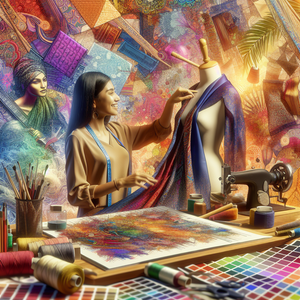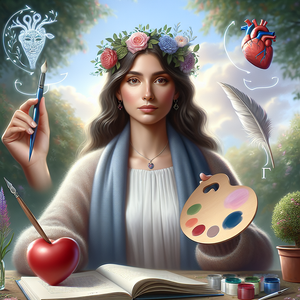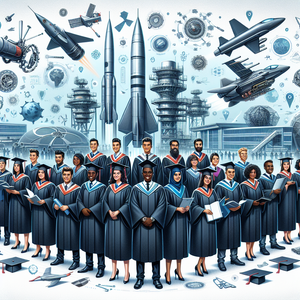
Discovering Career Opportunities in Textile Design: 15 Paths to Explore
The world of textile design is a captivating blend of artistry, innovation, and technical expertise, presenting a wealth of career options for those with diverse interests and skill sets. As the industry evolves, so do the roles within it, ranging from traditional positions to specialized careers focused on sustainability and technology. This article delves into 15 potential career paths in textile design, outlining key responsibilities, required skills, and educational qualifications for each role. Whether you're starting your career or considering a transition, this guide aims to help you find your ideal niche in this vibrant field.
Job Summaries:
Textile Designer:
- At the heart of the industry, textile designers craft original fabric patterns for apparel and home goods.
- A degree in textile or fashion design is common, paired with a compelling portfolio.
- Staying informed on trends and possessing strong communication skills are crucial for collaborating with clients and manufacturers.
Surface Pattern Designer:
- These creatives focus on making repeat patterns for textiles and various surfaces.
- Utilizing both traditional and digital methods.
- While formal education in fine arts or textile design is helpful, many successful surface pattern designers are self-taught.
- Building relationships with fashion brands can significantly boost career opportunities.
Freelance Textile Designer:
- Freelancers in textile design enjoy the advantage of flexibility, selecting projects and clients that align with their interests.
- They must also be skilled in self-promotion and business management, including contracts and invoicing.
- A strong portfolio and background in textile design or a related field are vital for success in this role.
Textile Production Manager:
- Overseeing the production process to ensure quality and timely delivery of textile products.
- A degree in textile engineering or production management is typically required.
- Leadership and organizational skills are needed to coordinate teams effectively.
Fashion Illustrator:
- Fashion illustrators play a key role in visualizing garments.
- They help designers convey their concepts.
- A background in fashion design or illustration is beneficial.
- A diverse portfolio is essential for success.
- Keeping up with fashion trends is crucial for success.
Textile Chemist:
- Specializing in dye and treatment development
- Textile chemists ensure that products meet safety and quality standards
- A degree in chemistry or textile technology is usually necessary
- Strong analytical capabilities are important
- Knowledge of environmental regulations is required
Colorist:
- Colorists curate color palettes for textile products.
- Align their work with market trends and consumer preferences.
- A background in color theory and textiles is advantageous.
- Effective communication skills are important for collaboration with designers and suppliers.
Textile Sales Representative:
- Acting as a bridge between manufacturers and buyers.
- Textile sales representatives present collections and negotiate contracts.
- Strong interpersonal and sales skills are essential.
- A solid understanding of market trends is important.
- While a degree in business or marketing can help, industry experience often carries more weight.
Textile Historian:
- Focused on researching the cultural significance and history of textiles.
- Textile historians often work in museums or educational settings.
- A degree in history, art history, or textiles is typically required.
- Strong research and writing skills are necessary for contributing to exhibitions and publications.
Textile Engineer:
- Concentrating on the technical aspects of fabric production.
- Textile engineers develop new materials and manufacturing processes.
- A background in engineering or textile science is essential.
- Adept problem-solving skills are important.
Sustainable Textile Designer:
- With an increasing focus on eco-friendly practices, these designers create textiles using sustainable materials and methods.
- Knowledge of environmental regulations and trends in sustainability is crucial for this role.
Textile Marketing Specialist:
- These specialists devise marketing strategies for textile companies.
- Conducting market research.
- Creating promotional content.
- A degree in marketing or communications is often required.
- Industry experience is often required.
Textile Quality Control Inspector:
- Ensuring that textile products meet established standards.
- Quality control inspectors require attention to detail and a background in textiles or manufacturing.
- Strong communication skills are also necessary for effective collaboration with different departments.
Textile Buyer:
- Responsible for sourcing fabrics and materials
- Textile buyers analyze market trends
- Negotiate prices with suppliers
- A degree in fashion merchandising or business is preferred
- Strong negotiation abilities are required
Textile Graphic Designer:
- These designers create visual elements for fabrics.
- Incorporating patterns and imagery that resonate with current fashion trends.
- A background in graphic design is essential for this role.
- Proficiency in software like Adobe Photoshop and Illustrator is essential.
The textile design sector presents an array of career paths, each offering unique opportunities for creativity and growth. By exploring the responsibilities, educational prerequisites, and skill requirements for each role, you can better navigate your career journey in this dynamic field. For those eager to embark on a career in textile design, considering educational resources, networking opportunities, and available job openings can help you take the first step.
Explore More Jobs

